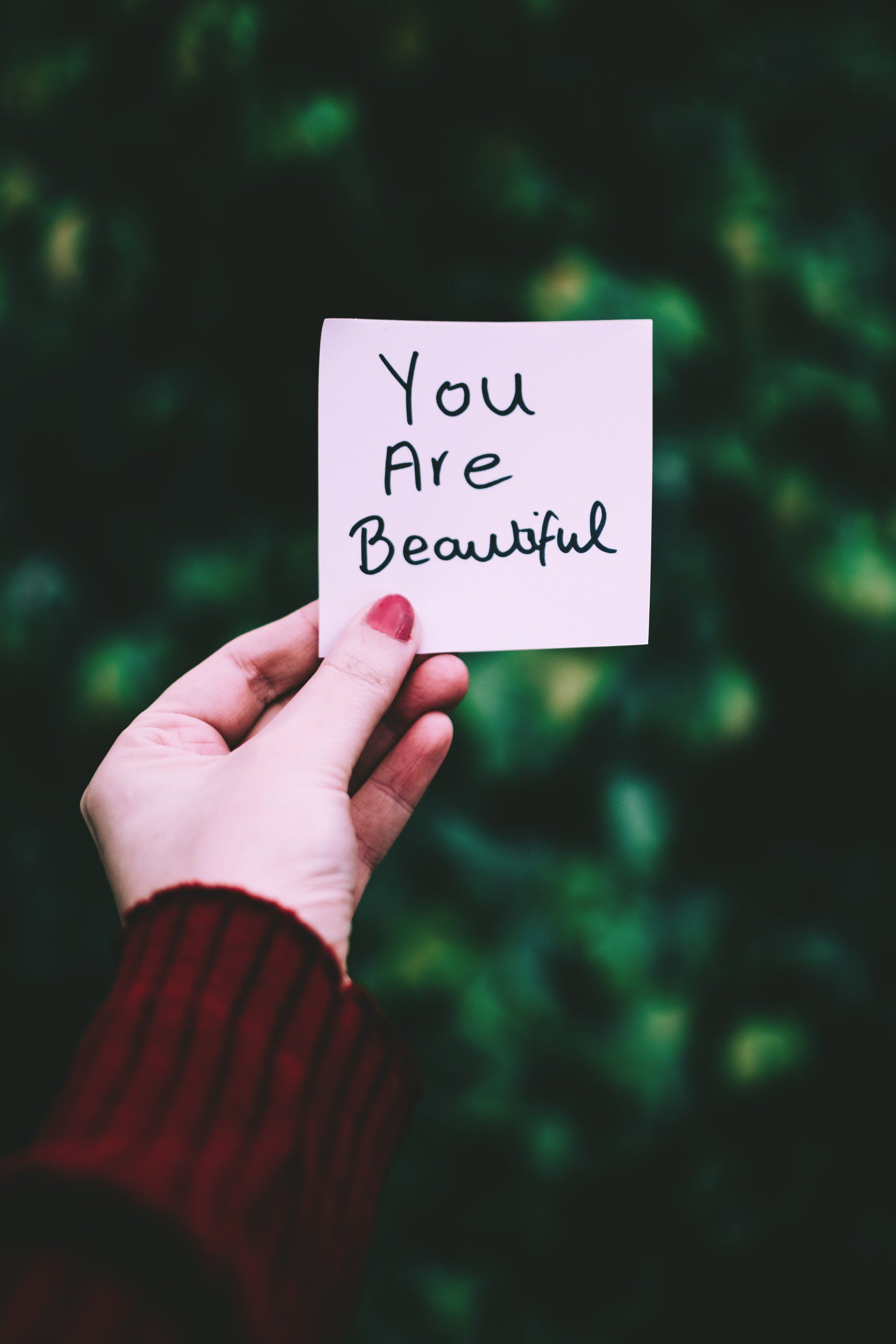Online counselling and therapies for expats, and women of all ages.
Blog

By Silvia
•
September 2, 2024
2020 rewrote the way we are coping. The level of collective anxiety has deepened every mental problem, and the apparent solution is online counselling. If you are struggling with isolation, fear, grief, or having panic attacks, I'm here to help. You may feel a strong urge to change but don't know how or where to start; online counselling can be your first step. You may be suffering deeply from a loss, have very low self-esteem, struggle with childhood traumas still shadowing you every day, or have strengthened lately. Perhaps you feel things are just not right and should be better. You may have recognised the problem and acknowledged you need someone to lead you through this. Let me show you something.

By Silvia
•
September 1, 2024
Being in the dream can be sweet and soft but less realistic than setting a goal and achieving it step by step. When you decide to leave your place for a new one, maybe a new country, a new culture, or a new adventure, you have to be the most focused and undoubtedly the most real version of yourself. No dreams any more, just the bleak reality that can be as joyful as harsh. So buckle up; your new challenge is about to begin! These challenges can vary depending on individual factors such as personality, previous experiences, and the specific circumstances of the move. Culture Shock: Culture shock is a well-documented psychological phenomenon that can affect anyone living in a foreign country. It involves feelings of disorientation, frustration, and anxiety as individuals try to adapt to a new culture, language, and way of life. Loneliness and Isolation: Moving to a new country often means leaving behind a support network of family and friends. This can lead to feelings of loneliness and isolation, especially if it's difficult to make new connections in the host country. Identity and Self-Esteem Issues: Living in a new culture can challenge one's sense of identity. Individuals may struggle with questions about who they are and where they belong, which can affect self-esteem and self-confidence. Language Barriers: Difficulty in communicating due to language barriers can be a significant stressor. It can lead to frustration and feelings of incompetence, making it harder to navigate everyday life and build relationships. Stress and Anxiety: The process of adapting to a new environment, including finding housing, employment, and understanding local customs, can be extremely stressful. This stress can lead to anxiety and, in some cases, even panic attacks. Depression: Prolonged feelings of homesickness, isolation, or frustration can contribute to depression. Adjusting to a new culture and lifestyle may take time, and this transition can be emotionally taxing. Cultural Adjustment: Different people go through different phases of cultural adjustment, which include the honeymoon phase (initial excitement), the culture shock phase (disorientation and frustration), the adjustment phase (gradual adaptation), and the acceptance phase (feeling comfortable in the new culture). Moving through these phases can be challenging and may involve periods of emotion Career and Financial Concerns: Career and financial stability can be jeopardized when living abroad, especially if one is unable to secure meaningful employment. Financial stress can contribute to psychological issues. Relationship Strain: Living abroad can strain relationships with family and friends back home. Additionally, forming and maintaining relationships in a new culture can be challenging, and this can lead to relationship issues and feelings of isolation. Cultural Misunderstandings: Misunderstandings or conflicts arising from differences in cultural norms and values can be frustrating and lead to interpersonal problems. To cope with these psychological challenges, individuals living abroad often seek support. So you are one of many who need special counselling for some time. Of course, other sources include local support networks, expatriate communities, and online community resources. It's essential to recognize that experiencing psychological difficulty when living abroad is normal, and seeking help and support is a healthy response to these challenges. Developing cultural sensitivity and resilience can help individuals adapt more effectively to their new environment. And remember, every challenge is a seed of growth.

By Silvia
•
December 12, 2020
Just think about our most ordinary activities, such as alternating sleep and wakefulness, when we are more tired, the state of daydreaming, or those activities we do in automatic mode. Still, we can also have peak experiences, for example, as a result of making love or some cathartic experience. So, some degrees exist between fully attentive conscious awareness and the most profound meditative state, or trance. THE HARD PROBLEM What is "consciousness"? To formulate what consciousness is, we must first turn to those philosophical studies of consciousness, which also question the knowability of consciousness, and the decision of which is called a "difficult problem". A fundamental question is whether something can exist that can only be seen by itself, from the inside, through the subjective observer. We all experience our feelings from the inside; our experiences are organized in a unique pattern, the network of our thoughts and the imprints of our perception in a complex order (or disorder:)) form the internal system that connects us to the outside world. Can this completely subjective system be approached objectively? Several schools of thought are trying to find an answer to the question, and all of them are somewhat right. It is also possible that consciousness in itself cannot be known objectively. That is why the changes in the state of consciousness are so important, during which some similarity or identity can be found in the changes of consciousness that are different at the level of the subject, from which it is possible to infer its functioning. THE PHYSIQUE The other direction of consciousness research, starting from the direction of physical reality, the body, and the brain, examines the traceable signs of changes in consciousness with various medical devices. EEG, MRI, and PET all measure some physical quantity, either the essential electrical activity or a change generated by some physical influence. These tools are generally used to map sleep and meditative states, which are more difficult to separate but still altered states of consciousness. What is the basis on which these states can be distinguished? They differ in different modalities of perception and self-perception, i.e. we perceive space and time, visual and auditory stimuli, our own body, and our identity differently, and we leave different bandwidths for the presence of the outside world, which also changes our attention capacity. Based on these, we can separate sleep from being awake, dreaming consciousness, or lucid dreaming. These parameters change in hypnosis or trance and in different stages of meditation. STATES OF MIND Why is it important to know these? Ken Wilber writes in his book The Integral View (Ursus Libris, 2008) that "the three natural states of consciousness - waking, dream and deep formless sleep - can be a small treasure chest of spiritual wisdom - if we know how to use them correctly." trans. Bence Gánti) According to Wilber, these states of consciousness can contain the entire spectrum of spiritual enlightenment. If we look at its everyday, practical usefulness, of course, it is not the fact of enlightenment itself that can help us but the path leading to it, which can illuminate the dark spots behind our problems that have been going on for years. So, knowing the states of our consciousness can be very useful in acquiring knowledge with which we can "consciously" migrate from one to another. How can a state of consciousness become healing? "Trance is a natural, everyday experience. Allow yourself to see what you don't allow yourself to notice." (M.H.Ericson) So the process in which we make efforts to modify the conscious mind (and here I do not mean taking pills, liquids and smokes), i.e. we do not only benefit from the changes that occur spontaneously (the Freudian dream work of the dream, the contents suppressed in the unconscious meaning the process of its processing here), can already have healing power in itself, since we are actively doing something with ourselves, for ourselves. The bonus is that by moving away from the awake state and paying attention to our inner self, we can tune in to our deepest wisdom, get answers to our questions, find the root of our physical or mental ailments, uncover their cause, and create the most effective remedy available at the moment. Somehow, in this process, we can change, whether it is self-made meditation or therapist-led hypnotherapy.

By Silvia
•
November 27, 2019
"Feelings, whether compassion or irritation, should be welcomed, accepted and treated equally because both are ourselves. The tangerine I eat is me. The cabbage I plant is me. With all my heart and soul, I clean this teapot with the kind of attention I could use to bathe the baby Buddha or Jesus. In mindfulness and compassion, the cabbage plant all become holy."/Thich Nhat Hanh/ The word "conscious presence" is most often used as the equivalent of mindfulness, but to clarify what it is, I will try to clarify it through a few examples: Have you ever noticed that many times when you do your everyday activities, e.g., go shopping, your mind is entirely different? You either think about what happened at work that day or what tasks await you when you get home. So you are not present but somewhere in the past or the future. Has it ever happened that when you were in a position of attention, whether you were just learning something, calculating, or driving in a strange place, your attention slipped, and you lost the thread because your mind was again on a trip to the past or the future? Does it happen that when you are listening to a performance or watching a movie, sitting in a theatre, you suddenly switch to "dreaming" mode because the play does not engage your mind and, therefore, starts producing another one, which of course is about YOU, but not about your present, but again about your PAST or your FUTURE? Have you ever had the experience of arriving somewhere without having any idea how you got there? If someone were to ask you what you saw on the way, would you be able to recall much? Suppose you answered yes to the above questions. In that case, you know how wandering our minds can be; perhaps you have already experienced how dangerous it can be in a given situation. And I'll go further: if this foggy, inattentive state persists for a long time (as, for example, it is unfortunately common after experiencing trauma and in crises), then your physical health can suffer as well. However, suppose you learn to build awareness and conscious attention through mindfulness and practice it regularly. In that case, you will not only enter a state of non-judgmental full attention, but you can achieve much greater physical and mental health than you could have ever imagined. This, your best version of yourself is not as unattainable as it seems at first. You must return to the original state of being because being in the present is our primary state, so it's much more comfortable for your mind and soul than you think. Countless scientific research proves that it is the most effective way to reduce stress and protect you from relapse after all kinds of therapy. Dr. Jon Kabat-Zinn, one of the most well-known researchers on the topic, put together the Mindfulness-Based Stress Reduction (MBSR) program, which is taught, researched and developed at the world's best medical universities and health institutions. An improved version of this is the version expanded with cognitive therapy, MBCT, which will slowly become a basic requirement for psychologists and professionals in the health sector. Living with fears means you are anxious, you are not efficient at your work, you are often in a bad mood, and you don't feel that you can control your life, then maybe a mindfulness-focused online consultation would help you a lot, which you can sign up for here:





